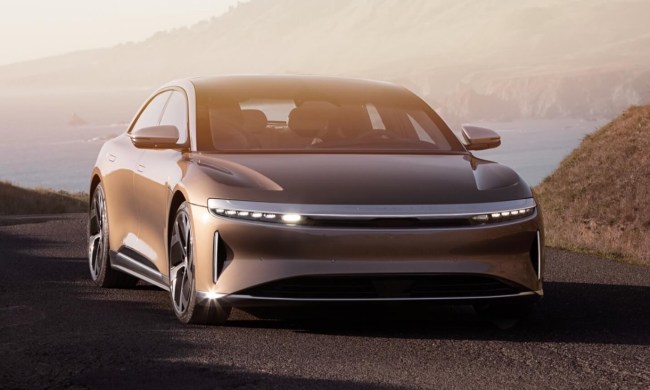There’s a chicken-or-egg question that has hung over mass electric vehicle adoption for nearly a decade: Which comes first, EVs in driveways or the charging infrastructure? Consumers are wary of buying an EV without knowing there are plenty of places to charge up, and utilities and private companies aren’t keen on installing public chargers if there aren’t enough electric vehicles to use them.
A panel of industry experts at CES 2020 took on this “painful ramp to electrification,” as Lea Malloy from Cox Automotive put it. She noted at the “Ready. Set. Charge!: An Electrified, Sustainable Tomorrow” panel that consumer’s hesitation boiled down to three things: the cost of the cars, their range, and the reliability of the battery.
More Affordable Options on the Way
Two of the panelists—Henrik Fisker of Fisker Inc. and Olivier Bellin of Canoo—have new all-electric vehicles at CES this year, and both companies are aiming at affordability. The Fisker Ocean can be leased or bought outright for $37,500; the Canoo is only available through a subscription. In either case, costs like maintenance are included in your monthly lease or subscription payment. Bellin sees the trend where “people move from usership to ownership” continuing.
Because the first long-range EVs to roll out were very expensive, Fisker said, people have the perception that all EVs come with luxury price tags. According to Malloy, the price of new gasoline-powered cars has risen 19% in the past two years while the price of EVs has gone up 2%.
But sticker price isn’t the only problem. “There’s a lack of choice, quite frankly,” Fisker noted. Malloy added that 2020 will be “a year of a litmus test; we have supply coming in, and we are expecting demand from the consumer marketplace.” As Ivo Steklac of charging company EVgo pointed out, there are roughly 12 models available to most markets in the United States right now, but there will be more like 200 models available nationally by 2021.
Range Against the Machine
“Range anxiety is something almost all non-EV drivers have,” Steklac said. Having an EV, knowing its range, and plugging in every night, go a long way toward soothing that worry. Malloy said that while well more than half of EV owners charge at home, they’d also like more access to charging both at home and at work.
But it’s the miles between the two that worry people. “People aren’t aware that there’s already a huge infrastructure of charging stations available,” Fisker said.
That’s where businesses like EVgo come in. “We’re trying to come close to mimicking the experience we understand with internal combustion engines,” Steklac said. That means more—and more convenient—DC fast chargers, which Mallory agreed were key to wider EV adoption. But Steklac also noted that as charging rates have increased, battery capacities have also gotten larger, so it takes longer to charge up.
Battery Basics
The battery question is, for now, mostly solved. Fisker said he felt like the battery technology we have now will be the standard for the next few years while engineers are working on the next big breakthrough. The current technology is enough to make vehicles with a 200-mile and longer range more common and more affordable.
The trouble, according to Mallory, is that consumers aren’t aware the technology is safe and reliable. Most manufacturers have a warranty of at least 8 years and 100,000 miles on their battery components, but consumers think it’s far less than that.
To come back to cost, smaller batteries are cheaper. A battery that provides 70 miles of range would be enough for most commuters any day of the week, but when those cars became available a few years ago, shoppers balked. It drove the industry to strive for a range well over 200 miles, which Fisker called the sweet spot between meeting drivers’ needs and affordability. “People like to have more than they really need.”



